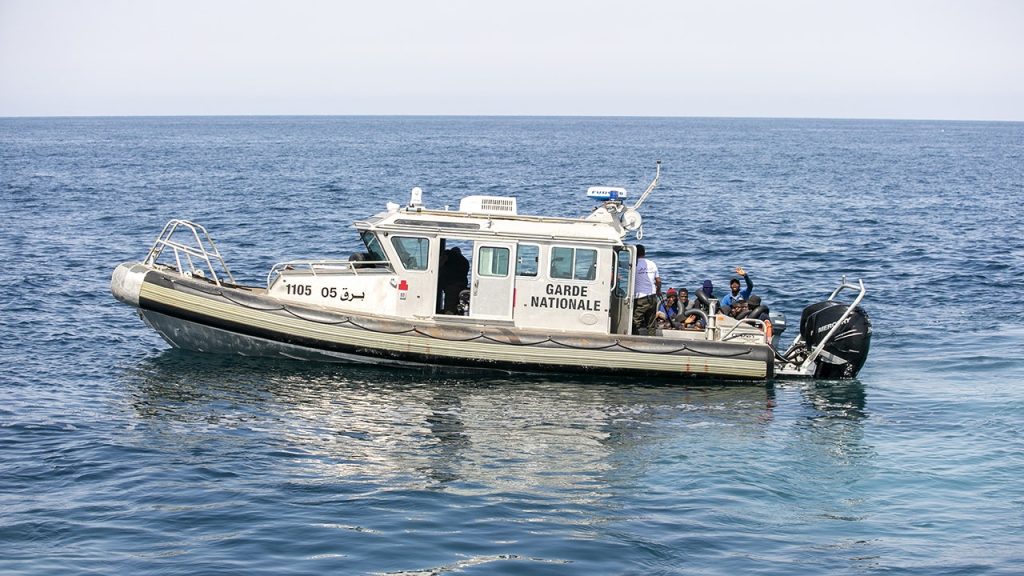The bodies of 19 people were recovered off the coast of Tunisia, a popular departure point for migrants seeking to reach Europe via the Mediterranean Sea. The bodies were found near the port cities of Mahdia and Sfax, with migrants from countries such as Morocco, Algeria, Tunisia, and Libya attempting to reach Italy, Greece, Malta, and Spain’s Canary Islands. Despite the risks involved, migrants continue to make the dangerous journey, with over 49,000 people reaching Europe by sea this year alone, including more than 7,000 from Tunisia to Italy. However, many more have been intercepted by North African authorities, with an estimated 473 believed to be dead or missing.
In recent weeks, migrants have clashed with law enforcement in Tunisia, which has led to an increased focus on combating human trafficking and dismantling smuggling networks by politicians on both sides of the Mediterranean. Tunisian authorities have arrested five smugglers in connection with the recent tragedy, highlighting the severe consequences that individuals involved in human trafficking can face. Charges related to human trafficking typically carry lengthy sentences of up to 20 years, indicating a strong stance against such criminal activities in the region.
The issue of migration from North Africa to Europe continues to be a pressing concern, with thousands of people attempting the dangerous sea voyage in search of a better life. The U.N.’s International Organization for Migration reports that despite the efforts of authorities to intercept migrants, a significant number of individuals have still managed to reach Europe by sea. The ongoing tragedies highlight the need for a comprehensive and coordinated approach to addressing the root causes of migration and providing support to vulnerable populations in the region.
The recovery of 19 bodies off the coast of Tunisia serves as a stark reminder of the risks involved in attempting to cross the Mediterranean Sea in search of a better life. The tragic incident underscores the need for greater international cooperation and support for countries in North Africa and Europe to address the complex challenges posed by migration. Efforts to combat human trafficking and smuggling networks must be coupled with initiatives to address the root causes of migration, such as poverty, conflict, and lack of opportunities in migrants’ countries of origin.
Despite the dangers involved, migrants continue to undertake the perilous journey from North Africa to Europe, driven by a combination of hope for a better future and desperation to escape difficult conditions in their home countries. The high number of deaths and disappearances among migrants attempting the journey underscores the urgent need for action to prevent further loss of life and ensure the safety and well-being of vulnerable populations. International organizations, governments, and civil society must work together to find sustainable solutions to the challenges posed by irregular migration and provide support to those in need.
The situation in Tunisia and other countries in North Africa highlights the complex and multifaceted nature of the migration challenge facing the region. Efforts to address the root causes of migration, such as poverty, conflict, and lack of opportunities, must be combined with measures to enhance border security, combat human trafficking, and provide safe and legal pathways for migrants in need of protection. The tragic loss of life off the coast of Tunisia underscores the urgent need for a coordinated and comprehensive approach to addressing the migration crisis and ensuring the safety and well-being of all individuals involved.


